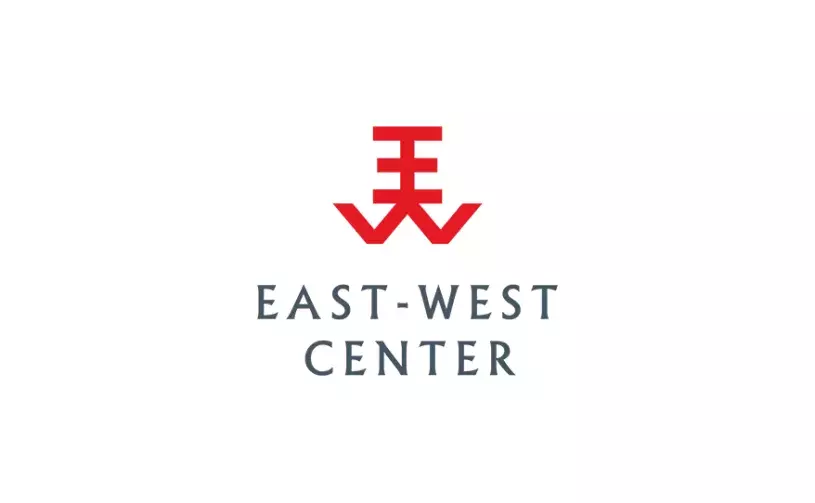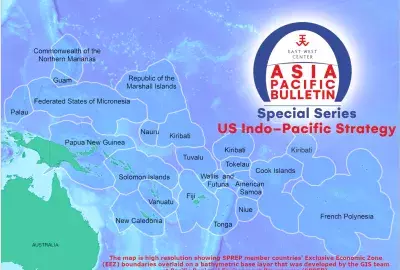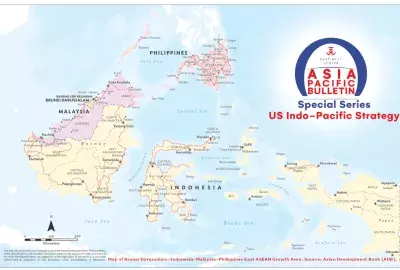Error message

|
Dr. Jagannath Panda, Research Fellow and Centre Coordinator for East Asia at the Institute for Defence Studies and Analyses (IDSA), New Delhi, explains that “India has not been constrained by broader diplomatic concerns in pursuing a forward-looking approach toward North Korea.” |
The first visit by the Minister of State for External Affairs of India V.K. Singh to Pyongyang in May 2018 after a gap of 20 years demonstrated New Delhi’s aim to nurture its relationship with North Korea and keep options open to advance its strategic presence in the rapidly evolving environment on the Korean Peninsula. Noting how both India and North Korea could possibly explore cooperation in areas of “mutual interests”, the official statement released after the visit of V.K. Singh iterated India’s support towards the evolving joint peace initiative between the DPRK and the ROK on the Korean Peninsula.
The tone of India’s response to the historic June 12, 2018 summit between the United States and DPRK was confident. Viewing Donald Trump-Kim Jong-un meet as a “positive development”, India purposely expressed its traditional concern over the proliferation linkages that exists between North Korea and India’s neighborhood. This response sufficiently indicates how India has not been constrained by broader diplomatic concerns in pursuing a forward-looking approach toward North Korea vis-à-vis the Korean Peninsula ahead of the “four no’s scenario” — no isolation of North Korea, no regime collapse in Pyongyang, no war-like situation on the Korean Peninsula, and no nuclear proliferation pledged by North Korea — that have emerged post the inter-Korean summits in Panmunjom and Pyongyang in April and September 2018, respectively.
India is no exception to the thinking that managing change on the Korean Peninsula is crucial to its strategic interests and requires reaching out to the respective parties. Major powers’ presences in the region, the significance of the denuclearization process, the prospects of economic cooperation in Northeast Asia along with enhanced relations with North Korea are significant factors that would encourage India as much as other actors to view the evolving peace process positively. As a non-critical actor, India’s political outreach to North Korea by sending Minister V.K. Singh just before the US-North Korea dialogue in June 2018 in Singapore, was a strategic move to stay connected with Pyongyang.
New Delhi visualized the ‘no isolation of North Korea’ and ‘no regime collapse’ scenarios as opportunities to revitalize its traditional diplomatic maneuvers with Pyongyang and strengthen the dual-track approach through enhanced diplomatic presence with both Koreas, despite the West’s continued skepticism over India-North Korea ties, and specifically New Delhi having an embassy in Pyongyang. New Delhi especially aims to nurture cultural and economic ties with North Korea bilaterally and possibly under the UN mandate. This is aptly reflected in the May 16, 2018 press release of Minister Singh’s visit, which reiterates how India and North Korea would be exploring “possibilities of cooperation” in areas ranging from traditional medicines and yoga to vocational training, including in the fields of agriculture and pharmaceuticals. The underlying desire is to reinforce people-to-people contacts to stay connected culturally and economically with a country that will only exemplify India’s stature as a peace-holder.
The other two scenarios — no war-like situation on the Korean Peninsula, and no nuclear proliferation pledged by North Korea — open critical options for India to emerge as a greater ‘participating’ actor in the inter-Korean peace prospects and denuclearization. The continued engagement with Pyongyang which New Delhi has maintained without succumbing to any international pressure opens a diplomatic front to play the constructive role of mediator should both the Koreas invite New Delhi at some point. India has not been a passive observer on the Korean Peninsula historically: it held the distinction of being chairman of a nine-member UN commission formed to hold elections in post-independence Korea in 1945. The India-sponsored ceasefire resolution accepted by both North and South ending the Korean War on July 27, 1953, still figures prominently within the debate on permanent peace in the region. This became even more relevant when the Pyongyang Declaration expressed the desire to ‘transform the Korean Peninsula into a land of permanent peace’. Thus, staying engaged with both the Koreas, especially the North, strengthens India’s historical forte in the region. This is equally a way forward to further India’s Act East Policy, both within and outside the Korean Peninsula.
India does not want to be completely isolated from the ‘denuclearization track’ of negotiation even though it is not directly involved in the process. New Delhi visualizes this as a fresh context not only to raise its concern over the matter internationally but also ensure that Pyongyang should not act against India’s security interest. Moreover, it provides India with the opportunity to raise its much-older concern over DPRK’s nuclear proliferation and its linkages with India’s neighborhood. Almost every official release from India over the last decade has expressed concern over the illegitimate nuclear technological nexus that exists between North Korea and Pakistan, alluding to the possible consent of China. This matter has primarily been overlooked by the critical actors in the wake of the ‘complete’ denuclearization debate. New Delhi’s advocacy aims to address these “proliferation linkages” and holds merit as “complete denuclearization” would not be possible without addressing North Korea’s ties to Pakistan. Indian concerns should be attended to afresh since recent reports indicate how North Korea is renewing its missile and nuclear programs even after its pledge to stop doing so after Panmunjom and Pyongyang declarations.
While India’s stance on most of the critical issues in the region does not hold similar weight to those of the United States, China, Japan, or Russia or South Korea, India’s approach to the Korean Peninsula is distinct from these actors: Having a positive approach toward the DPRK only exemplifies India’s outreach in East Asia, extending the canvas of New Delhi’s Act East Policy (AEP). Staying engaged with Pyongyang reinforces India’s status as a rising power in the rapidly evolving Indo-Pacific calculus while New Delhi has been careful not to take any explicit side on key issues or partake in any alliance-building exercise linked to the Korean Peninsula.
India’s engagement with North Korea only strengthens the 46-year-old diplomatic relationship established in 1973 after the initial consular contacts in 1962 — despite having knowledge of North Korea’s military alliance partnership with China and continued missile and nuclear cooperation with Pakistan. New Delhi’s strained relationship with China in 1962 did not discourage it from establishing a diplomatic channel with North Korea; nor did the DPRK’s tight relations with China prevent Pyongyang from engaging with India. So, pursuing a more engaging approach towards North Korea in the current circumstances is nothing extraordinary for India. Rather, India sees the opportunity to strengthen engagement with North Korea and make Pyongyang feel special by assuring the diplomatic channel of contacts that it has always enjoyed with New Delhi. This has created a level of self-assurance and confidence on both sides amidst the rapidly changing environment in the Korean Peninsula.
|
Dr. Jagannath Panda, Research Fellow and Centre Coordinator for East Asia at the Institute for Defence Studies and Analyses (IDSA), New Delhi, explains that “India has not been constrained by broader diplomatic concerns in pursuing a forward-looking approach toward North Korea.” |
The first visit by the Minister of State for External Affairs of India V.K. Singh to Pyongyang in May 2018 after a gap of 20 years demonstrated New Delhi’s aim to nurture its relationship with North Korea and keep options open to advance its strategic presence in the rapidly evolving environment on the Korean Peninsula. Noting how both India and North Korea could possibly explore cooperation in areas of “mutual interests”, the official statement released after the visit of V.K. Singh iterated India’s support towards the evolving joint peace initiative between the DPRK and the ROK on the Korean Peninsula.
The tone of India’s response to the historic June 12, 2018 summit between the United States and DPRK was confident. Viewing Donald Trump-Kim Jong-un meet as a “positive development”, India purposely expressed its traditional concern over the proliferation linkages that exists between North Korea and India’s neighborhood. This response sufficiently indicates how India has not been constrained by broader diplomatic concerns in pursuing a forward-looking approach toward North Korea vis-à-vis the Korean Peninsula ahead of the “four no’s scenario” — no isolation of North Korea, no regime collapse in Pyongyang, no war-like situation on the Korean Peninsula, and no nuclear proliferation pledged by North Korea — that have emerged post the inter-Korean summits in Panmunjom and Pyongyang in April and September 2018, respectively.
India is no exception to the thinking that managing change on the Korean Peninsula is crucial to its strategic interests and requires reaching out to the respective parties. Major powers’ presences in the region, the significance of the denuclearization process, the prospects of economic cooperation in Northeast Asia along with enhanced relations with North Korea are significant factors that would encourage India as much as other actors to view the evolving peace process positively. As a non-critical actor, India’s political outreach to North Korea by sending Minister V.K. Singh just before the US-North Korea dialogue in June 2018 in Singapore, was a strategic move to stay connected with Pyongyang.
New Delhi visualized the ‘no isolation of North Korea’ and ‘no regime collapse’ scenarios as opportunities to revitalize its traditional diplomatic maneuvers with Pyongyang and strengthen the dual-track approach through enhanced diplomatic presence with both Koreas, despite the West’s continued skepticism over India-North Korea ties, and specifically New Delhi having an embassy in Pyongyang. New Delhi especially aims to nurture cultural and economic ties with North Korea bilaterally and possibly under the UN mandate. This is aptly reflected in the May 16, 2018 press release of Minister Singh’s visit, which reiterates how India and North Korea would be exploring “possibilities of cooperation” in areas ranging from traditional medicines and yoga to vocational training, including in the fields of agriculture and pharmaceuticals. The underlying desire is to reinforce people-to-people contacts to stay connected culturally and economically with a country that will only exemplify India’s stature as a peace-holder.
The other two scenarios — no war-like situation on the Korean Peninsula, and no nuclear proliferation pledged by North Korea — open critical options for India to emerge as a greater ‘participating’ actor in the inter-Korean peace prospects and denuclearization. The continued engagement with Pyongyang which New Delhi has maintained without succumbing to any international pressure opens a diplomatic front to play the constructive role of mediator should both the Koreas invite New Delhi at some point. India has not been a passive observer on the Korean Peninsula historically: it held the distinction of being chairman of a nine-member UN commission formed to hold elections in post-independence Korea in 1945. The India-sponsored ceasefire resolution accepted by both North and South ending the Korean War on July 27, 1953, still figures prominently within the debate on permanent peace in the region. This became even more relevant when the Pyongyang Declaration expressed the desire to ‘transform the Korean Peninsula into a land of permanent peace’. Thus, staying engaged with both the Koreas, especially the North, strengthens India’s historical forte in the region. This is equally a way forward to further India’s Act East Policy, both within and outside the Korean Peninsula.
India does not want to be completely isolated from the ‘denuclearization track’ of negotiation even though it is not directly involved in the process. New Delhi visualizes this as a fresh context not only to raise its concern over the matter internationally but also ensure that Pyongyang should not act against India’s security interest. Moreover, it provides India with the opportunity to raise its much-older concern over DPRK’s nuclear proliferation and its linkages with India’s neighborhood. Almost every official release from India over the last decade has expressed concern over the illegitimate nuclear technological nexus that exists between North Korea and Pakistan, alluding to the possible consent of China. This matter has primarily been overlooked by the critical actors in the wake of the ‘complete’ denuclearization debate. New Delhi’s advocacy aims to address these “proliferation linkages” and holds merit as “complete denuclearization” would not be possible without addressing North Korea’s ties to Pakistan. Indian concerns should be attended to afresh since recent reports indicate how North Korea is renewing its missile and nuclear programs even after its pledge to stop doing so after Panmunjom and Pyongyang declarations.
While India’s stance on most of the critical issues in the region does not hold similar weight to those of the United States, China, Japan, or Russia or South Korea, India’s approach to the Korean Peninsula is distinct from these actors: Having a positive approach toward the DPRK only exemplifies India’s outreach in East Asia, extending the canvas of New Delhi’s Act East Policy (AEP). Staying engaged with Pyongyang reinforces India’s status as a rising power in the rapidly evolving Indo-Pacific calculus while New Delhi has been careful not to take any explicit side on key issues or partake in any alliance-building exercise linked to the Korean Peninsula.
India’s engagement with North Korea only strengthens the 46-year-old diplomatic relationship established in 1973 after the initial consular contacts in 1962 — despite having knowledge of North Korea’s military alliance partnership with China and continued missile and nuclear cooperation with Pakistan. New Delhi’s strained relationship with China in 1962 did not discourage it from establishing a diplomatic channel with North Korea; nor did the DPRK’s tight relations with China prevent Pyongyang from engaging with India. So, pursuing a more engaging approach towards North Korea in the current circumstances is nothing extraordinary for India. Rather, India sees the opportunity to strengthen engagement with North Korea and make Pyongyang feel special by assuring the diplomatic channel of contacts that it has always enjoyed with New Delhi. This has created a level of self-assurance and confidence on both sides amidst the rapidly changing environment in the Korean Peninsula.







